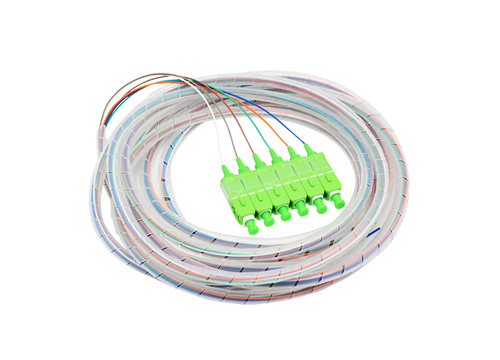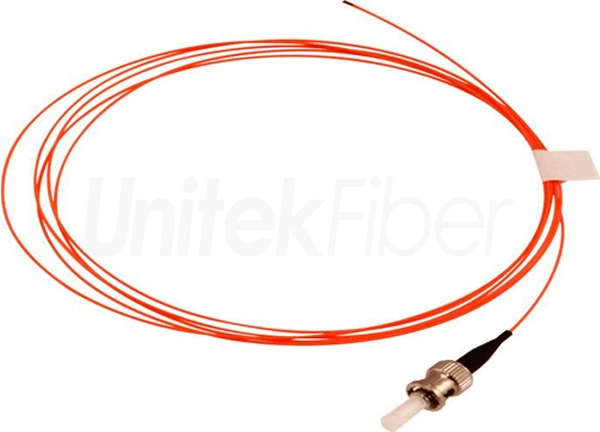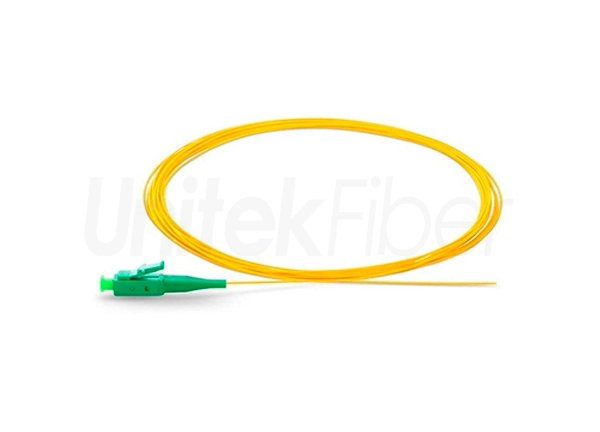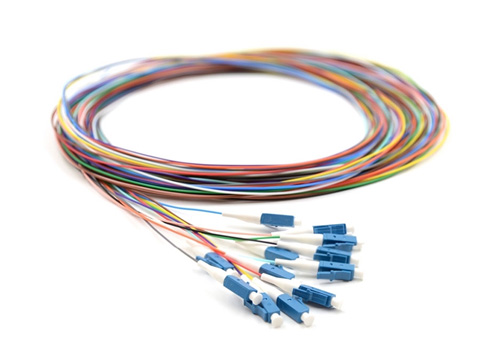
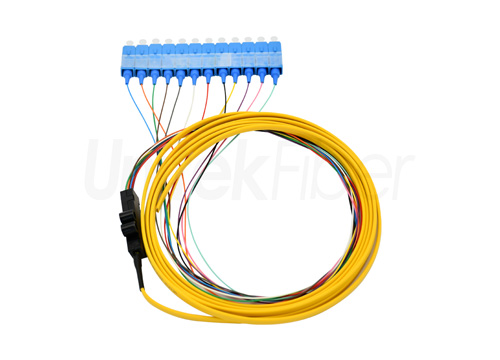
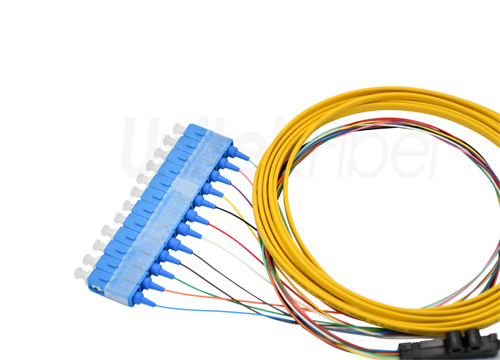
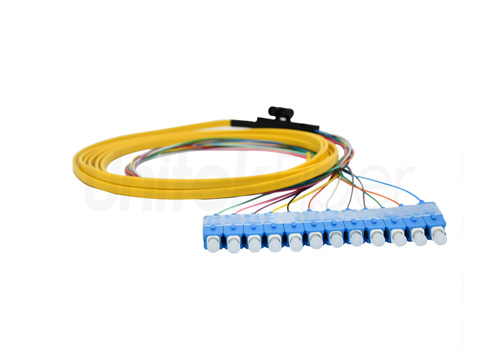
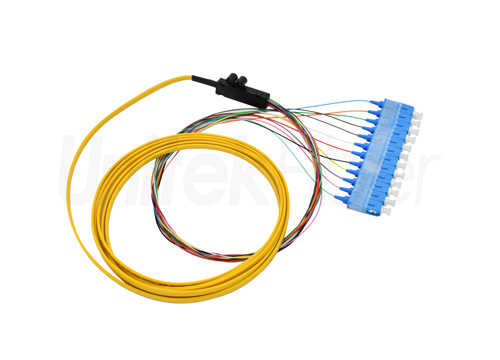




A distribution fiber optic pigtail is a pre-terminated fiber optic cable assemblies that serves as an interface between backbone fiber optic cable and networking equipment. Their pre-terminated design simplifies installation, reduces the risk of human error, and enables faster deployment. The distribution fiber optic pigtail are available in various optical fiber counts, jacket materials, and fiber connector types, allowing for customization and flexibility in network design. Distribution fiber optic pigtails offer flexibility, compatibility, easy installation, and scalability, making them essential components in network infrastructures.
Distribution fiber optic pigtails are available in a variety of fiber connector types, each offering specific features and advantages to meet different network requirements. The SC fiber connector is widely used due to its push-pull design and compatibility with both single mode and multimode optical fibers. The LC fiber connector, with its small form factor, is commonly used in high-density applications where space is limited. ST fiber connectors feature a bayonet-style coupling mechanism, making them suitable for industrial environments. FC fiber connectors, known for their threaded coupling mechanism, provide secure connections for critical applications. The selection of a specific fiber connector type depends on the equipment or network infrastructure being used and the specific application requirements.
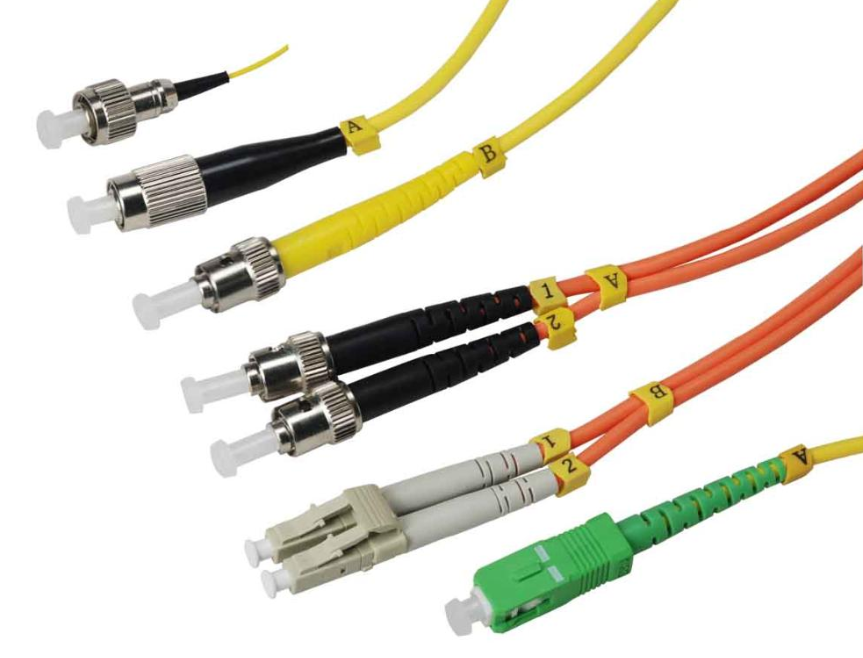
Color coding is an essential aspect of distribution fiber optic pigtails as it simplifies the identification and management of individual fibers. The TIA/EIA-598-B standard defines a 12 color standard color code for fiber optic cables, which applies to the coatings of the optical fiber bundles within the optical cables. For a 6 core distribution fiber optic pigtail, it's common to use either the first or last 6 colors from the standard color code list in a systematic manner. This method ensures consistent and organized identification of the optical fiber cores within the optical cable. When the capacity of the distribution fiber optic pigtail exceeds 12 fibers, the color codes are reused in a cyclical manner. Color coding eliminates confusion and reduces the potential for errors, enhancing the efficiency and accuracy of fiber optic connections. It also facilitates organization within complex systems and allows for easy tracing of specific optical fibers within optical cable assembly bundles, making it an essential feature of distribution fiber optic pigtails.

distribution fiber optic pigtails are essential for establishing efficient and reliable connections between fiber optic cables and equipment across a wide range of industries. They find applications in telecommunications, data centers, broadcasting, security systems, industrial automation, and healthcare etc. These fiber optic pigtails provide high-speed and low-latency communication, immunity to electromagnetic interference, and enable the transmission of high-resolution images and videos over long distances. The versatility, speed, and reliability of distribution fiber optic pigtails make them integral components of modern communication networks.
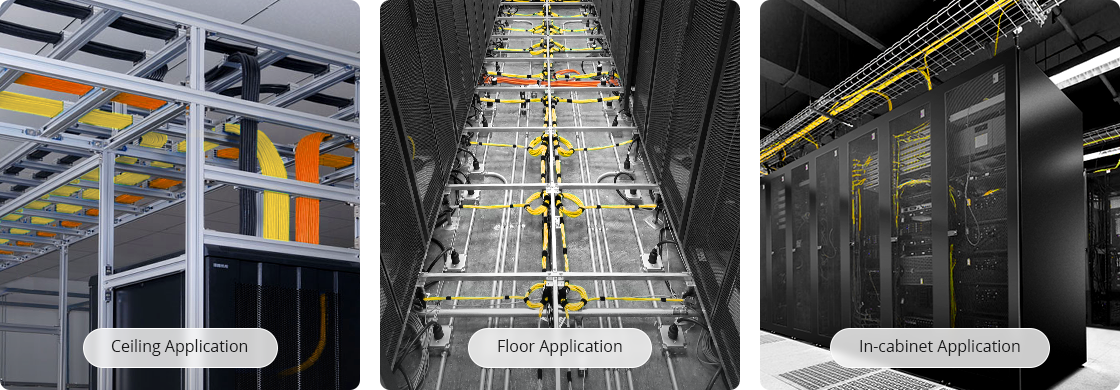
1. OFNR (Optical Fiber Nonconductive Riser) are designed for riser applications. They are used in spaces inside a building that connect floors, such as vertical zones or spaces between floors. These OFNR fiber optic cables are engineered to prevent the spread of fire from one floor to another within a building.
2. OFNP (Optical Fiber Nonconductive Plenum) are used inside buildings in plenum areas, the areas between a ceiling and the floor above it, where space is reserved for the circulation of air. At the same time, this OFNP fiber optic cable will not emit toxic smoke or steam.


The fiber optic pigtail is a pre-terminated fiber optic cable with a fiber connector on one end and exposed optical fiber on the other.
The choice of fiber connector type depends on factors such as the network infrastructure, required density, optical fiber type (single mode or multimode), and specific application needs.
Yes, Unitekfiber can offer customizable fiber optic cable lengths for fiber optic pigtails.
Yes, bulk fiber optic pigtails are specifically designed for fusion splicing.
When installing fiber optic pigtails, it is important to avoid bending the fiber beyond its minimum bend radius, prevent contamination of the fiber connector end face, and protect the optical pigtails from excessive tension or strain.
The fiber optic pigtail pre-terminated design made installation a breeze, and the fiber connectors were compatible with all our networking equipment.
Fiber optic pigtail performance has been flawless, providing fast and stable connectivity throughout our network infrastructure.
Optical pigtail's compatibility with different optical fiber types allowed for seamless integration with our existing infrastructure.
These fiber optic pigtails have become an integral part of our network infrastructure, and I couldn't be happier with their performance.
I recently purchased distribution fiber optic pigtails for a small-scale network setup, and I couldn't be more satisfied. The fiber optic pigtails were easy to install, even for someone with limited experience in fiber optics.


